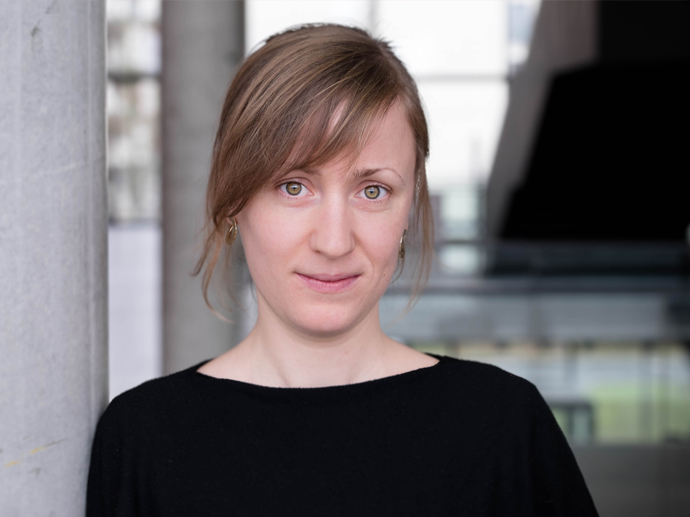I am very excited to be part of the Oslo School of Environmental Humanities (OSEH) from late February till early April 2023. During my time in Oslo, I am interested in all OSEH activities and other events related to Environmental Humanities research. I am currently in the process of writing up my PhD thesis on the cosmopolitics of the Svalbard Global Seed Vault and always curious to broaden my horizon by thinking with others.

I am a sociologist and PhD candidate at Goethe University Frankfurt in Germany, where I am working as a research associate and lecturer in the ‘Biotechnologies, Nature and Society’ research group in the faculty of social sciences since 2018. My research and teaching focus on post-anthropocentric approaches in sociology, feminist and decolonial theory and epistemology, social studies of science and technology, as well as on political ecology and the relations that make natural-cultural worlds.
My PhD research is an inquiry into the world and cosmopolitics of agrobiodiversity conservation. At the heart of my thesis lies a qualitative study of the Svalbard Global Seed Vault, an international seed storage facility in the Arctic Svalbard archipelago. I conceive and investigate the Seed Vault as a nodal point of global ex situ conservation efforts. Based on ethnographic field research in Svalbard and expert interviews with conservationists from all over the world, whose work is related to the Seed Vault in one way or another, I explore the rationalities and more-than-human relationalities that make the world of agrobiodiversity conservation. Thus, I bring seed banking – one of the key international agricultural approaches against agrobiodiversity loss and for future food security – into view as a technoscientific mode of world-making and negotiating futurity.
I have discussed some of my early research findings and first thoughts on this research in Making Post/Anthropocentric Futures in Agrobiodiversity Conservation, published in Nature and Culture in 2021. I have also contributed a short exploration of Dis/continuities of Extractivism in Conservationism: The Case of Seed Banking to the Berliner Gazette in 2022. Before I turned to agrobiodiversity conservation, I have explored the futuristic world and practice of Cryonics – the freezing of dead bodies and brains for resuscitation in an anticipated techno-optimized future – and written about it in Freezing Lives, Preserving Humanism: Cryonics and the Promise of Dezoefication, published in Distinktion: Journal of Social Theory in 2019.
For more information on my work please visit my website at Goethe University Frankfurt.
